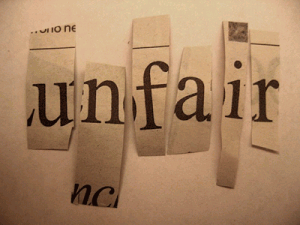
According to a new survey, voters are unhappy with the mortgage settlement as delivered by the state attorneys general.
The $26 billion mortgage settlement, despite its hefty price tag and extensive (if not laborious) composition, received its fair share of criticisms almost immediately after being issued, with housing advocates and community organizers railing against the settlement’s perceived shortcomings.
A new Poll Position survey, however, would seem to suggest that the distaste for the settlement is much more widespread.
A national scientific survey conducted via the telephone, the survey sampled 1,242 registered voters on Feb. 12, asking them, “Do you think the mortgage agreement is fair?”
Overall, 60 percent of respondents said the agreement was not fair. Seventeen percent said it was fair and 23 percent did not know enough about the agreement or did not offer an opinion.
Unsurprisingly, the respondents’ answers were very much influenced by age and political leanings. Seventy percent of Republican voters, for instance, said the settlement was not fair, compared to only 13 percent who said it was fair.
Among the age brackets, voters aged 30 to 44 were the most dissatisfied; 63.6 percent replied they were not pleased with the settlement, and considering that many homeowners in that age bracket now own properties with little of their boom-era value – and that those same homeowners received little-to-no benefit from the settlement – their grievances are anticipated.
And as writer Rick Cohen argued in an extensive piece on the mortgage settlement that appeared in the Nonprofit Quarterly, there are simply too many missing pieces in the settlement for its results to be satisfactory.
“Estimates are that the settlement may help as many as 1 million homeowners—but 11 million homeowners sit with mortgages underwater,” Cohen wrote. “As two Milwaukee advocates put it, ‘the $17 billion for principal reduction and refinancing is a drop in the bucket of the estimated $700 billion negative equity in which homeowners and the economy are currently drowning.'”
What most people focus on is the legality of the robosigning and the MERS system.
What no one talks about is the fact that loans being foreclosed on we’re in fact delinquent regardless of to whom the paper was sold. Anyone current on their mortgage was not foreclosed on or negatively affected by the transfers to different investors. So the robosigning becomes a technicality to defer responsibility for a debt instead of focusing on the truth that these loans were delinquent. The law often discusses how the public is injured by specific activities. How was the public damaged by robosigning?